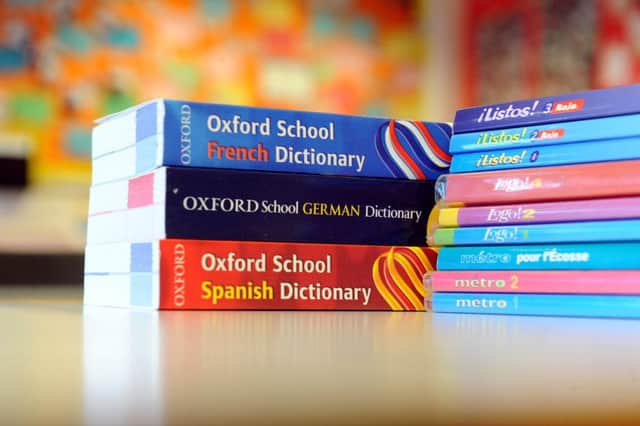Jill Stephenson: We need foreigners to teach kids English


This gives one an idea of what it is like to be functionally illiterate – and it can be uncomfortable. Our concern should therefore be for those in our own society whose grasp of literacy is tenuous, or even non-existent.
It seems that our prisons are full of them and there is undoubtedly a connection there. Imagine being unable to secure a job because one has not learned to read and write at school.
Advertisement
Hide AdAdvertisement
Hide AdImagine a first world country allowing children to leave school without a good grasp of literacy.
One could make the same points about numeracy. The recent record of Scottish schools in terms of literacy and numeracy has been no better than average when measured against the rest of the world.
We British are not famed for our foreign language skills. With a universal language that is ours from childhood, most people make little effort to learn another.
We have gifted linguists, of course, and many others who learn a foreign language for business or holiday purposes. But we are routinely put to shame by citizens of countries across Europe and the world who speak our language fluently.
Writing it is where the contrast is most visible. I recall students from Germany or Finland whose written English was grammatically and syntactically far superior to that of many of the natives. They had difficulty with the definite article – as in ‘I go to school’ but ‘I go to the theatre’. English is full of little traps like that. Nevertheless, their written prose was often a pleasure to read.
There is a real problem with the teaching of English, and it reaches back decades to when trainee teachers were told that children had to ‘express themselves’ and nit-picking about grammatical errors would stunt creativity.
Often, a class would learn English grammar from a French teacher who had to teach pupils how their own language functioned before they could begin to learn about another language.
It is sad that so few Scottish children have the opportunity to learn Latin. Its structures and rules make learning about language relatively easy. The solution might be to recruit teachers of English (as a foreign language) to teach native English- speakers how their own language works and what its correct forms are.
Advertisement
Hide AdAdvertisement
Hide AdOne would have to hope that Brexit would not prevent the importation of busloads of German and Finnish teachers of English to improve the literacy skills of those for whom English is not merely their own language but, for most, their only language.
Jill Stephenson is Professor Emeritus of History and Honorary Professorial Fellow in the School of History, Classics and Archaeology, University of Edinburgh.